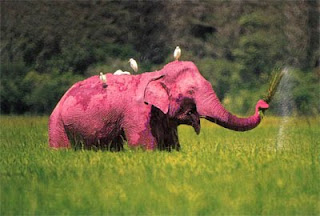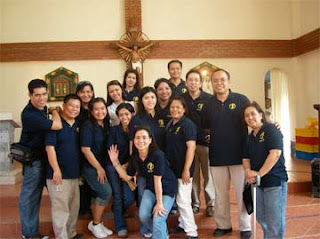
4th Sunday of Advent
Matthew 1:18-24: “The angel of the Lord appeared to him in a dream”
December 23, 2007
When I first came here in Zamboanga City a month ago, many of my friends from Manila warned me not to go to Basilan. I smiled and said, “Alam mo ba, may Jollibee sa Basilan?” It was a pleasant surprise to him, “Really? You are joking!” I smiled. “Come with me, I will treat you a burger.” Such experience is not new to us; we are disappointed when tourists shy away from our country because of the CNN news. The images of Abu Sayaf, Payatas dump site, kidnappings, Trillianes in Manila Pen, begging street children, graft corruption speaks a lot. This is journalism; they highlight the bad news by showing us images. Unfortunately, images are powerful than words. An image can say a thousand words.
The battle of evil and good now is in the arena of imagery. We are bombarded with the image of poverty, graft and corruption, war and crime. The evil is personified and highlighted through vivid images of people who plants chaos or victims of injustices – Osama Bin Laden. Sadam. Al-Qaeda. Iraq war. Trillianes. Abu Sayafs. Marinet. Sumilao Farmers. Evil has a very vivid face. We see too much about the bad things people do.
Ironically, when we think of people that epitomize good news, we find very few. We have some few in mind but they are dead (Cardinal Sin), forgotten (Jose Rizal, Andres Bonifacio), a boxer ( Pacquiao), or a foreigner (Al Gore). We don’t have somebody in our fingertips! Bad news has faces. Good news has none.
We are well fed with words of good news – bible, encyclicals, treaties, visions and missions. But what we need are warm bodies that will embody the good news. We need “living witnesses” and “snap shots” of what good news is. To see a Christian and a Muslim praying together says a lot. To see a father jogging with his son on a Sunday morning. A taxi driver returning 10,000 dollars to a tourist. To smile to strangers. To praise somebody. To lend a hand. Not so much on doing great things. We need to start somewhere. Mother Teresa said, “In this life we cannot always do great things. But we can do small things with great love.” It is images and not words that really matters. Beautiful words may move us, but images of “love in action” give hope and convert people.
Our gospel for today speaks of Joseph. He was a carpenter – a master craftsman. A master craftsman must have a creative mind (dreamer) and can bring out his idea to something tangible and real (doer). Joseph was both dreamer and worker. The three times we have a record of God speaking to Joseph, it was through an "angel of the Lord" appearing to him in a dream. Each time when he woke up, he immediately obeyed the messenger (Matthew 1:20; 2:13, 19). Like Mary, Joseph’s motto is “Let it be”
But God is the greatest craftsman of all. The whole scripture is a history of God’s promises and fulfillment. The apex of God’s craftsmanship was when God himself became man, “And the word became flesh and dwelt among us.” (John 1:14). Presence matters – An incarnated God that can be seen and touched. A God of the here and now.
Christmas then is a call to wake up. God created us to become His presence and image of his goodness. To be the ongoing “incarnation of God.” God used Jesus to be His face on the first Christmas. Today, God wants us to be His face…here and now.
My friend’s view of Basilan changed when he learned there is Jollibee in Basilan. “It must be peaceful there.” Jollibee did the trick. But we are not a bee, we are be-ings!
“We must become the change we want to see in the world.” (Mahatma Gandhi)
- Fr. Willy M. Samson,SJ






